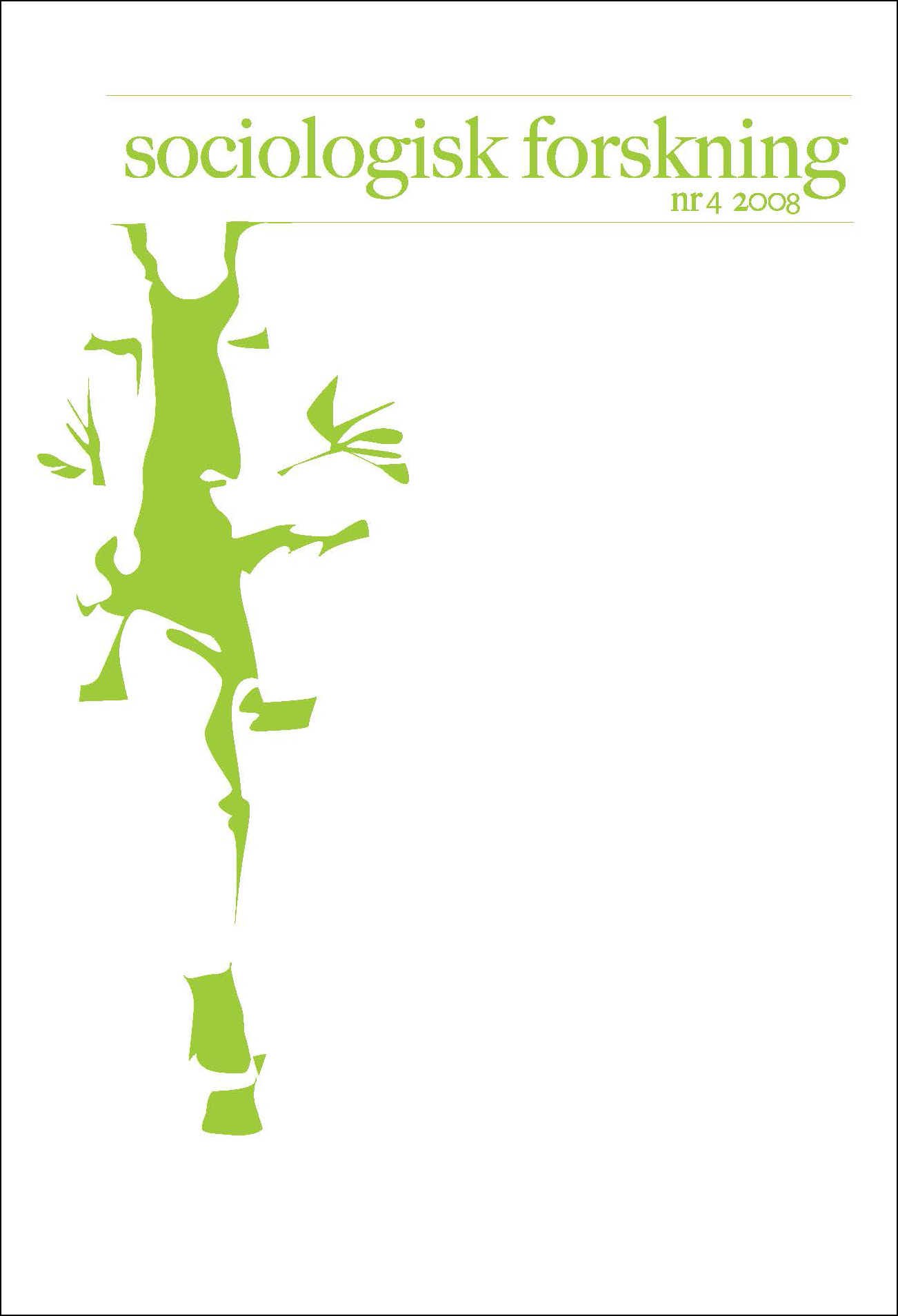Självet, rollerna och pågående koordinationer av mänskliga handlingar
Om att försöka se ’samhället’ som något annat än fängelse eller marionetteater
DOI:
https://doi.org/10.37062/sf.45.19253Keywords:
role-sociology, structuration, individualization, de-modernized modernity, the self, self-coherence, Alain Touraine, George Herbert Mead, Merleau-Ponty, Hans JoasAbstract
The self, roles and the ongoing coordination of human action. Trying to see ‘society’ as neither prison nor puppet theatre
In the article it is argued that structural North-American role-sociology may be integrated with theories emphasizing ‘society’ as ongoing processes (f. ex. Giddens’ theory of structuration). This is possible if the concept of role is defined as a recurrence oriented to the action of others standing out as a regularity in a societal process. But this definition makes it necessary to in a fundamental way understand what kind of social being the role-actor is. This is done with the help of Hans Joas’ theory of creativity and Merleau-Pontys concept of ‘flesh’ arguing that Meads concept of the ‘I’ maybe understood as an embodied self-asserting I, which at least in reflexive modernity has the creative power to split Meads ‘me’ into a self-voiced subject-me and an other voiced object-me. The embodied I communicating with the subject-me may be viewed as that role-actor which is something else than the role played. But this kind of role-actor is making for new troubles because it is hard to understand how this kind of self is creating self-coherence by using Meads concept of ‘the generalized other’. This trouble is handled by using Alain Touraines concept of the ‘subject’ and arguing that the generalized other is dissolving in de-modernized modernity. In split modernity self-coherence may instead be created by what in the article is called the generalized subject. This concept means a kind of communicative future based evaluation, which has its base in the ‘subject’ opposing the split powers of both the instrumentality of markets and of life-worlds trying to create ‘fundamentalistic’ self-identities. This kind of self is communicative because it also must respect the other as ‘subject’. It exists only in the battle against the forces of the market or a community. It never constructs an ideal city or a higher type of individual. It creates and protects a clearing that is constantly being invaded, to use the words of the old Frenchman himself. Asa kind of test-case it is by the way in the article shown how Becks concept of individualization may be understood in a deeply social and role-sociological way.
Downloads
Published
How to Cite
Issue
Section
License
All content in Sociologisk Forskning is published with immediate open access, under the Creative Commons license CC BY-NC-ND 4.0.
All content may be read, downloaded, shared and printed for non-commercial purposes, free and without fees. Contents may not be altered. When content is reused, author, source and a link to the copyright licence must be provided. The author retains copyright to their content. No publication fees are charged.





